Choosing the right flooring for your home is more than just a design decision—it’s a lifestyle choice. You want something that looks great, stands up to daily wear and tear, and fits within your budget. Vinyl plank flooring is one of the fastest-growing options out there, and if you’ve been researching, you’ve probably come across glowing reviews and some cautionary tales.
But how do you know if it’s truly the right choice for you?
We’ll break down the real-world pros and cons of vinyl plank flooring so you can make an informed decision with confidence. By the end, you’ll have a clear understanding of vinyl plank flooring’s strengths and limitations. And most importantly, you’ll know if it’s the perfect fit for your home. Let’s dive in!
What Is Vinyl Plank Flooring?
Vinyl plank flooring has made waves in the flooring industry for its versatility, affordability, and ability to mimic high-end materials like hardwood and stone. But what exactly is it, and why is it so popular?
At its core, vinyl plank flooring is a synthetic flooring material designed to look like natural materials—most commonly wood. It comes in plank form, which mimics the long, rectangular shape of traditional hardwood boards. The real beauty of vinyl plank flooring is that it’s not just about looks; it’s about performance and practicality, too.
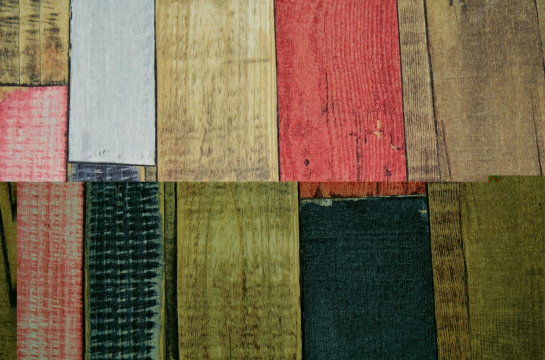
Breaking Down the Layers
Vinyl plank flooring is made up of multiple layers, each with a specific purpose:
- Wear Layer: The top transparent layer acts as a shield, protecting the surface from scratches, stains, and wear. A thicker wear layer generally means better durability.
- Design Layer: This printed layer gives the flooring its appearance. High-quality vinyl planks use advanced printing technology to create realistic wood, stone, or tile patterns, complete with natural grain textures.
- Core Layer: Depending on the type of vinyl plank, the core layer may be made of rigid materials for added stability (e.g., SPC – stone plastic composite, or WPC – wood plastic composite). This layer also contributes to water resistance, making it a great choice for kitchens, bathrooms, and basements.
- Backing Layer: The bottom layer provides support and helps with sound absorption and cushioning underfoot. Some premium vinyl planks even come with attached underlayment for added comfort and easier installation.
Luxury Vinyl Plank (LVP) vs. Standard Vinyl Plank
You may have come across the term “Luxury Vinyl Plank” (LVP) during your research. While both standard and luxury options are designed to mimic natural materials, LVP typically offers more realistic designs, enhanced durability, and thicker construction. In fact, many homeowners choose LVP as a budget-friendly alternative to traditional hardwood flooring because it’s hard to tell the difference at first glance.
Why Homeowners Love It
Vinyl plank flooring’s ability to adapt to a variety of home settings is one of its strongest selling points. It’s waterproof, making it ideal for moisture-prone areas, and many products are designed for quick, DIY-friendly installation. And if you’ve ever experienced the heartbreak of a scratched wood floor, you’ll appreciate vinyl’s resilience to daily mishaps like dropped toys, pet claws, or kitchen spills.
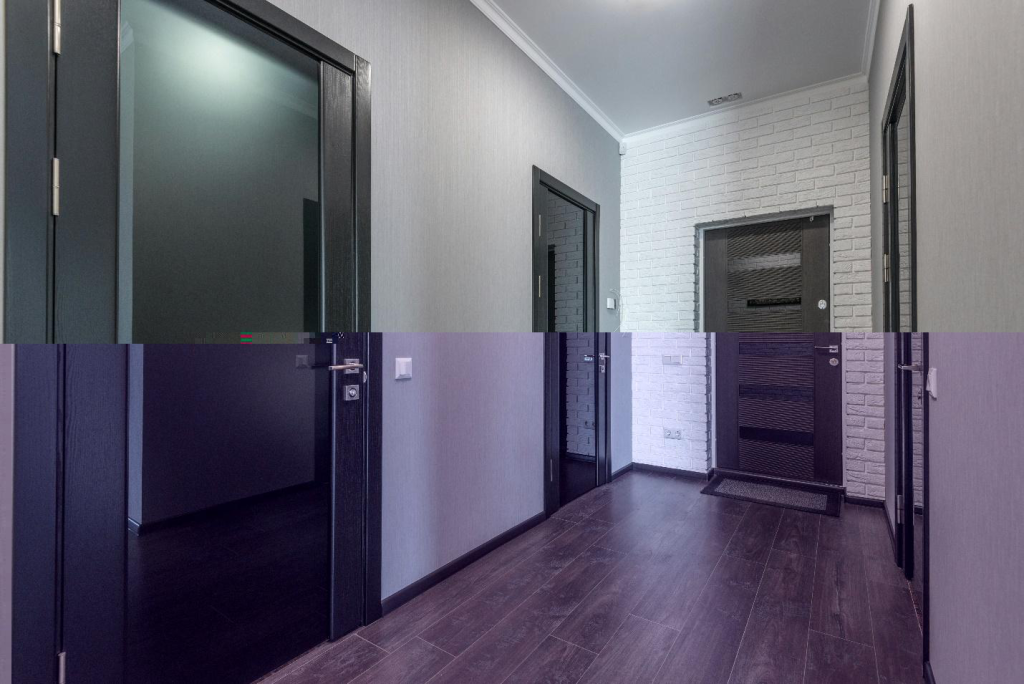
The Pros of Vinyl Plank Flooring
1. Durability and Resilience: Built to Withstand Life’s Messes
One of vinyl plank flooring’s greatest strengths is its ability to handle the wear and tear of everyday life. Whether you have kids running around, pets with sharp claws, or a high-traffic kitchen, vinyl planks are designed to stand up to it all.
- Scratch Resistance: Most high-quality vinyl planks come with a tough wear layer that resists scratches from furniture, toys, and even pet nails.
- Waterproof Options: Luxury vinyl plank (LVP) options are 100% waterproof, making them ideal for bathrooms, kitchens, basements, or laundry rooms.
Manufacturers often back their vinyl plank products with warranties that range from 10 to 25 years—a testament to their durability.
2. Aesthetic Variety: A Floor for Every Style
Gone are the days when vinyl flooring looked cheap or artificial. Today’s vinyl planks come in an impressive variety of styles that can mimic the look of hardwood, stone, or even tile. Thanks to advancements in printing technology, these planks can replicate natural textures and grain patterns so convincingly that many guests won’t be able to tell the difference.
- Wood Looks: From rustic oak to modern maple, vinyl planks can match virtually any wood style you desire.
- Stone and Tile Looks: Want the elegance of marble or the timeless appeal of slate? Vinyl plank flooring has you covered.
The sheer variety allows homeowners to customize their space without being limited by budget or material availability.
3. Affordability: High Style, Low Cost
One of vinyl plank flooring’s biggest draws is its budget-friendliness. While it’s often cheaper than hardwood or natural stone, it doesn’t compromise on style or durability.
- Cost Comparison: High-end hardwood can cost $8 to $15 per square foot (or more), while luxury vinyl plank often falls between $2 to $5 per square foot.
- Lifetime Value: Vinyl plank’s longevity means you’re not replacing or refinishing it every few years.
Whether you’re renovating an entire home or updating a single room, vinyl plank flooring can help you stretch your budget further without sacrificing quality or design.
4. Low Maintenance: Simple Care, Stunning Floors
Maintaining vinyl plank flooring is refreshingly easy, especially when compared to more high-maintenance materials like hardwood.
- Daily Cleaning: A quick sweep or vacuum is usually enough to keep dust and dirt at bay.
- Mopping: Occasional damp mopping with a mild cleaner keeps the floor looking its best. No need for specialized products or regular waxing.
- No Refinishing Needed: Unlike hardwood, which may need to be sanded and refinished over time, vinyl plank maintains its look without extra work.
This low-maintenance nature makes vinyl plank flooring a practical choice for busy households or those who simply prefer not to spend hours on upkeep.
5. Comfort Underfoot: A More Cushioned Feel
Vinyl plank flooring tends to feel softer underfoot than materials like tile or stone. Some even come with a padded underlayment for extra comfort.
- Sound Absorption: Vinyl planks help reduce noise, making them a great choice for upstairs rooms or apartments.
- Temperature Regulation: Unlike cold tile, vinyl stays relatively comfortable underfoot, even during colder months.
This added comfort can make a big difference in spaces where you spend a lot of time standing, such as kitchens or laundry rooms.
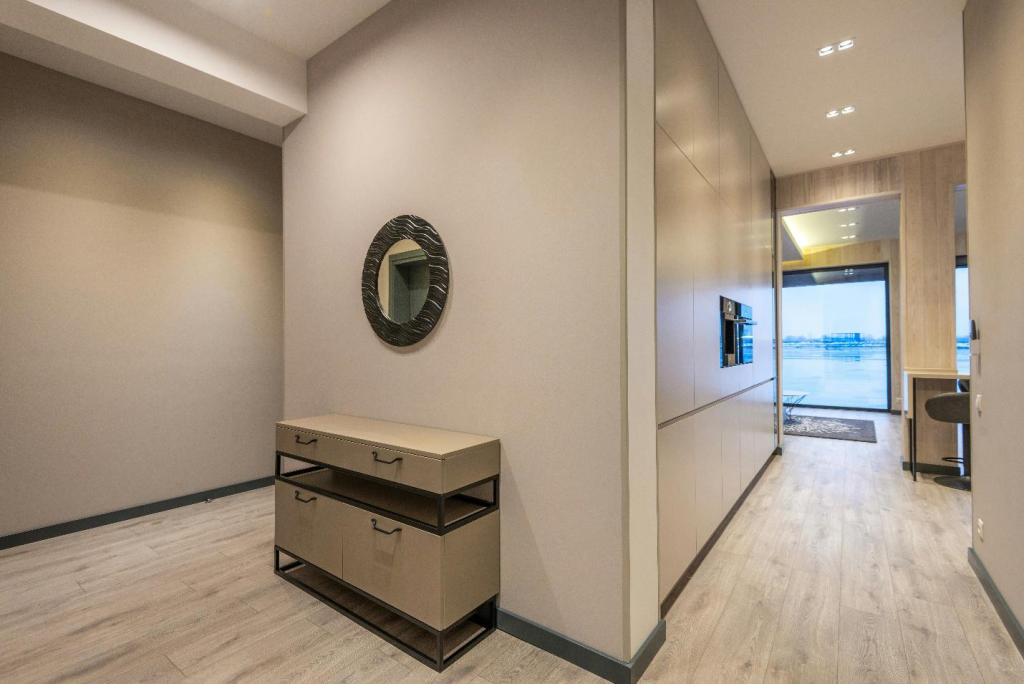
The Cons of Vinyl Plank Flooring
1. Environmental Concerns: Sustainability Trade-Offs
One of the biggest criticisms of vinyl plank flooring is its environmental impact. Vinyl is made from synthetic materials, primarily PVC (polyvinyl chloride), which is not biodegradable.
- Non-Biodegradable: Unlike natural materials like wood or cork, vinyl plank flooring doesn’t break down easily and often ends up in landfills.
- VOC Emissions: Some lower-quality vinyl products can emit volatile organic compounds (VOCs), which may affect indoor air quality.
- Limited Recycling Options: Recycling vinyl plank flooring is challenging, though some manufacturers are working on creating more sustainable products.
If sustainability is a priority, consider low-VOC options or brands that offer eco-friendly alternatives. You could also explore hybrid flooring materials that balance style and environmental responsibility.
2. Potential Fading from Sunlight
Vinyl plank flooring is prone to fading if exposed to prolonged direct sunlight. Over time, UV rays can cause discoloration or dulling of the floor’s surface.
- Preventative Measures:
- Use UV-blocking window treatments or blinds to minimize exposure.
- Consider installing area rugs in highly exposed areas.
If your home has large, sun-facing windows, this is an important factor to consider before installation.
3. Susceptibility to Dents and Heavy Furniture Damage
While vinyl plank flooring is generally durable, it’s not completely immune to damage from heavy furniture or sharp objects.
- Heavy Loads: Vinyl planks can dent if heavy furniture sits in the same spot for too long or if items are dragged across the floor without protection.
- Furniture Pads: Placing felt pads or rubber casters under furniture can help distribute weight and prevent denting.
While this isn’t a deal-breaker, being mindful of furniture placement and using protective measures can help extend the life of your floor.
4. Subfloor Sensitivity: Installation Challenges
Vinyl plank flooring performs best when installed over a smooth, even subfloor. If the underlying surface is uneven or porous, it can lead to issues such as:
- Warping or Buckling: Uneven subfloors can cause vinyl planks to shift or buckle over time.
- Adhesion Issues: For peel-and-stick planks, an incompatible subfloor surface may prevent the adhesive from bonding properly.
Always prepare your subfloor by leveling or smoothing it out before installation. If in doubt, consult a flooring professional to assess the surface beforehand.
5. Lower Resale Value Compared to Hardwood
While vinyl plank flooring is a stylish and cost-effective option, it doesn’t have the same prestige or resale value as hardwood. Many homebuyers still view hardwood as the “gold standard” of flooring.
- Buyer Preferences: In higher-end real estate markets, buyers may prefer authentic materials like hardwood or natural stone.
If you’re planning to sell your home in the near future and resale value is a top concern, it’s worth weighing whether vinyl plank flooring will meet your needs.
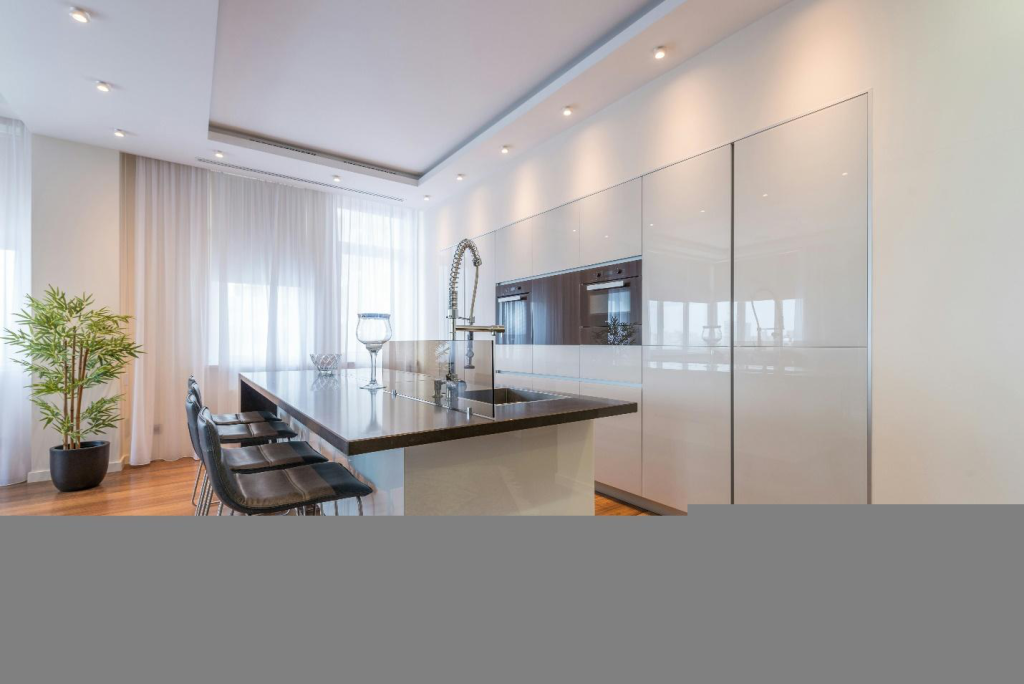
Final Considerations: What to Ask Before You Buy
1. How Will This Flooring Fit My Lifestyle?
Your daily habits and household dynamics should play a major role in your decision. Consider how you use your space and what kind of traffic your floors will endure.
- Busy Households: If you have kids or pets, prioritize vinyl planks with a thicker wear layer to withstand scratches and spills.
- Entertaining Spaces: For high-traffic areas, opt for commercial-grade or high-durability vinyl.
- Moisture-Prone Rooms: If you’re installing in bathrooms or basements, make sure the vinyl is waterproof, not just water-resistant.
2. What’s My Budget—and What’s Included in the Price?
While vinyl plank flooring is known for being cost-effective, the final price tag depends on more than just the planks themselves. Ask yourself:
- Is installation included? Professional installation can add significant costs, so factor this in if you’re not going the DIY route.
- Do I need underlayment? Some planks come with pre-attached underlayment, while others require purchasing a separate layer.
- What about additional materials? You may need trim pieces, baseboards, or transition strips to complete the job.
3. How Will This Flooring Impact My Home’s Resale Value?
While vinyl plank flooring is stylish and functional, it’s worth considering how it may affect your home’s resale potential.
- High-End Homes: If you’re in a premium real estate market, buyers may expect hardwood or stone over vinyl.
- Practical Benefits: On the other hand, homebuyers may appreciate waterproof, low-maintenance flooring in high-traffic areas or basements.
4. Will It Match My Home’s Design and Aesthetic?
Vinyl plank flooring offers a wide range of colors and finishes, but it’s essential to choose something that complements your home’s style.
- Color and Grain: Decide whether you want a light, airy wood look for a modern vibe or darker, richer tones for a more traditional feel.
- Seamless Transitions: If you’re not replacing all the flooring in your home, consider how the new vinyl planks will transition to existing surfaces.
5. How Easy Is It to Maintain Long-Term?
Low maintenance is one of vinyl plank flooring’s selling points, but different types of planks may have varying care requirements. Ask about:
- Cleaning Requirements: Does the manufacturer recommend any special cleaning products?
- Scratch and Dent Resistance: Some floors may require extra caution with furniture or heavy objects.
- Warranty Coverage: Look for warranties that cover wear, damage, and manufacturing defects.
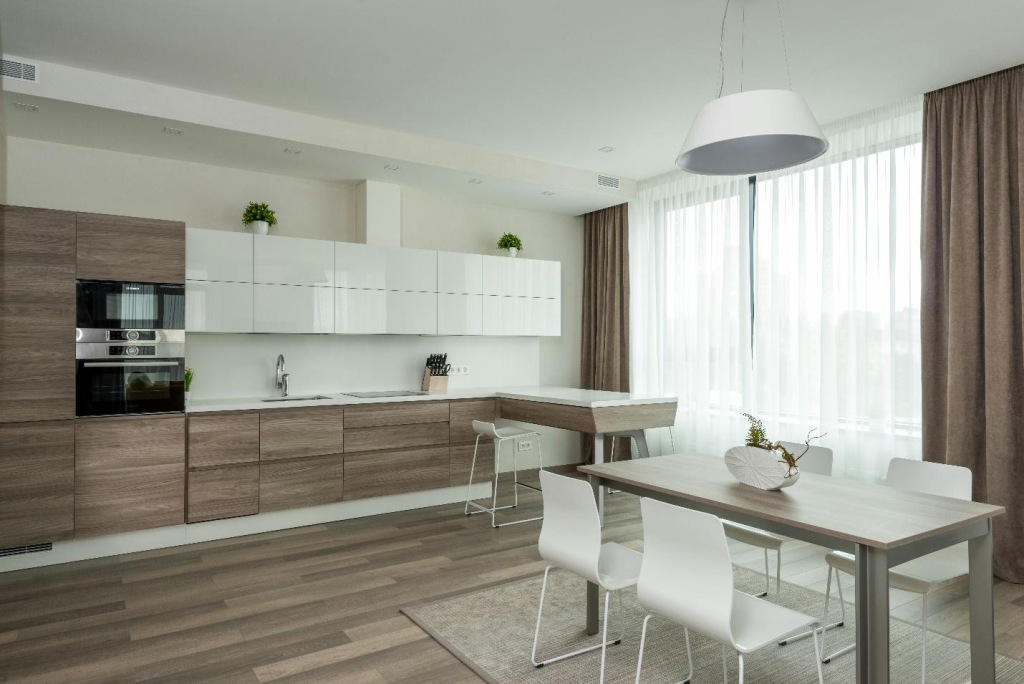
Upgrade Your Space with Vinyl Plank Flooring
At Floorcraft, we’re your vinyl flooring experts in Northern Virginia, offering top-notch service and professional guidance. From vinyl tile installation to affordable vinyl plank flooring, we offer it all. Call us today to explore our wide range of flooring solutions, get personalized advice, and transform your home or business with durable, stylish flooring tailored to your needs!